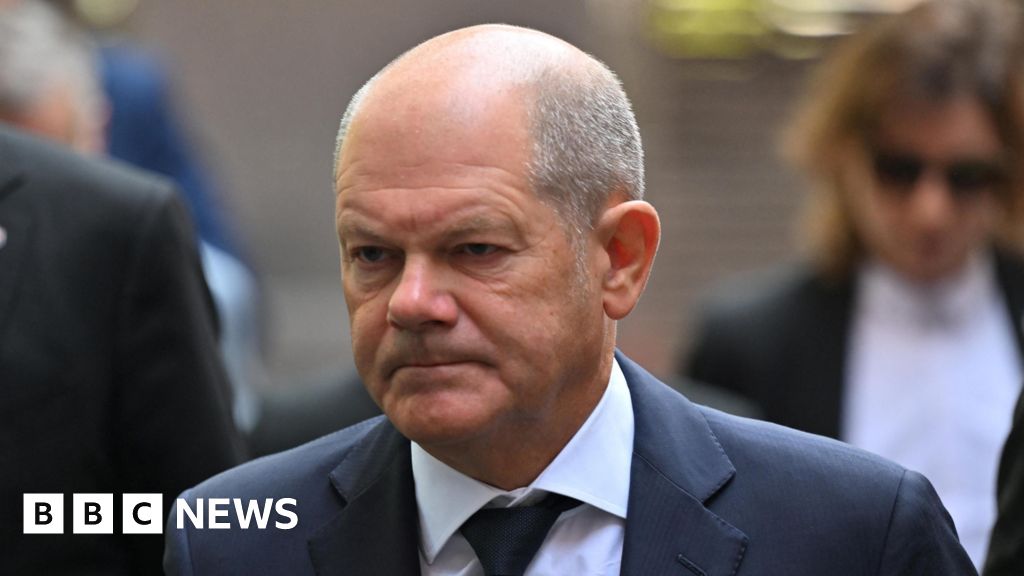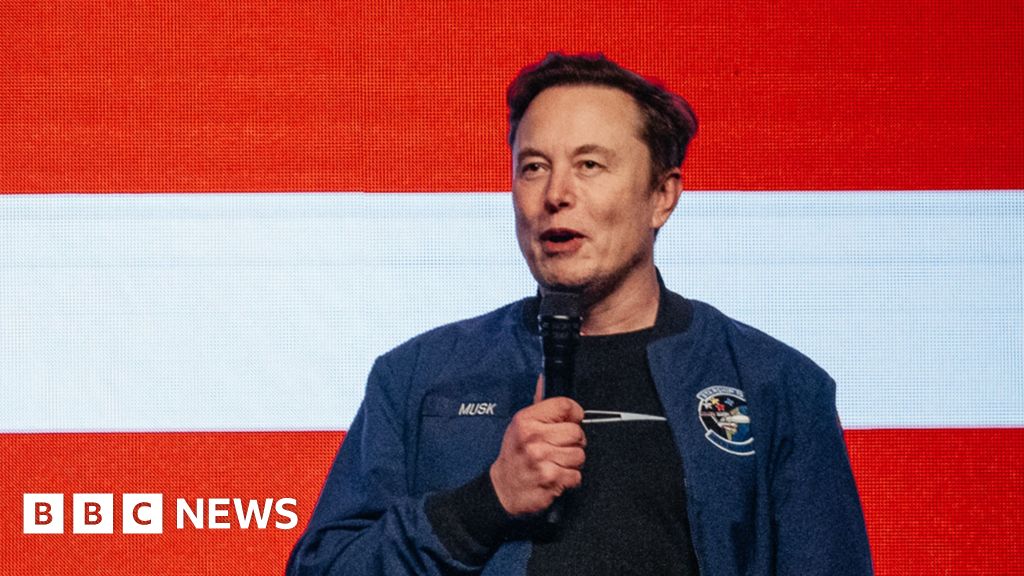
Germany’s Olaf Scholz vows crackdown on illegal migration
- International
- August 26, 2024
- No Comment
- 116
Irregular migration into Germany “must go down” after a Syrian man who came to Germany as an asylum seeker was charged with killing three people in an attack in the western town of Solingen last week, German Chancellor Olaf Scholz has said.
“This was terrorism, terrorism against us all,” Mr Scholz said during a visit to Solingen on Monday.
Mr Scholz also said his government would have to do “everything we can to ensure that those who cannot and should not stay here in Germany are repatriated and deported” and that deportations would be sped up if necessary.
He also promised to tighten laws on weapons ownership “very quickly”.
The political ramifications of the tragedy started reverberating across Germany as soon as officials confirmed the suspect in Friday’s deadly stabbings was a Syrian refugee.
The alleged attacker – named as 26-year-old Issa Al H. – is suspected of links to the terror organisation Islamic State.
An already heated debate about migration has become even more ferocious.
A day after the attacks, conservative opposition leader Friedrich Merz demanded an end to taking in refugees from Syria and Afghanistan and called for controls on all of Germany’s borders.
Alice Weidel, leader of the far right Alternative for Germany (AfD), has gone a step further and wants a complete stop to all migration.
Experts say such suggestions are not feasible and incompatible with German and European Union law.
Mr Scholz’s governing centre-left SPD party says Germany remains committed to its legal and humanitarian commitments to help those fleeing persecution.
But his government has also pledged to deport migrants who have committed serious crimes and people whose application for asylum has been rejected.
The suspect in the Solingen attack came to Germany in 2022 as a Syrian refugee. Usually Syrians have a good chance of being granted asylum in Germany.
But his application was rejected and he was ordered to be deported to Bulgaria, because he had already registered for asylum there. Officials say when they tried to deport him, they could not locate him and he remained in Germany.
Now a row has broken out about who was responsible for that failing.
Germany does not generally deport people back to unsafe countries or war-zones such as Syria, or Afghanistan – which would involve negotiating with the Taliban government. But there are calls to change that.
For years Germany has been embroiled in a controversial debate about migration. Local councils say their budgets are stretched. There are also calls to speed up the application process and allow refugees to work sooner which some say would help them integrate into German society.
Given the large numbers of refugees Germany takes in, the country generally copes well, and this year refugee numbers appear to have been dropping.
However, Germany typically takes in hundreds of thousands of asylum seekers every year.
In 2023 just over 350,000 people applied for asylum. In addition, around 1.2 million Ukrainians have arrived in Germany since Russia’s full-scale invasion in 2022.
Compared to other countries which take in fewer refugees, terror attacks connected to asylum seekers in Germany are rare.
The last major incident was in 2016, when 12 people were killed when an Islamist extremist drove a lorry into a Christmas market in Berlin.
But this latest attack may have a huge political impact.
On Sunday, two large eastern German states – Saxony and Thuringia – will hold key regional elections.
The AfD, which is hoping to do well and may even win the most votes, is already using the attack as part of its campaign.
Within hours of the stabbing, the AfD – referring to the party’s regional leader in Thuringia, Björn Höcke – posted a video on social media captioned with the words “Höcke or Solingen”.
#Germanys #Olaf #Scholz #vows #crackdown #illegal #migration









